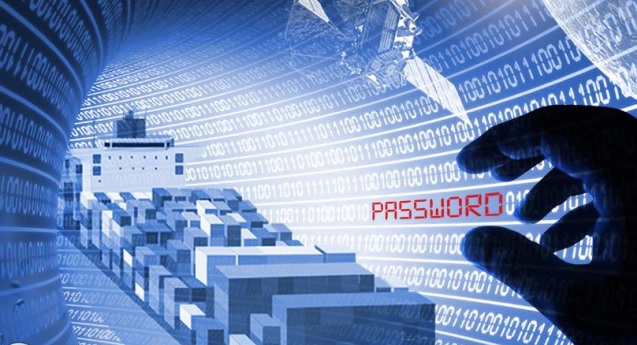In its latest issue of Phish and Ships newsletter 2019, Be Cyber Aware at Sea campaign focuses on personal cyber crime and the victims of it. Since cyber attack poses major threats in the maritime industry, if one hasn’t followed specific steps to build their cyber security at sea, they might be an easy target.
Mainly, at this point of cyber activity in the maritime industry, a big number has already been hit by cyber crimes. Everyone is a possible target of cyber attacks. Except owning an antivirus program and a host firewall, many are the steps to be taken to prevent any possible attacks.
- WiFi
When not in need, turning your WiFi off will not only enhance your battery life but it will also prevent potentially dangerous information leaks. For instance, when travelling around with the WiFi turned on but disconnected from a network, it will broadcast a list of access points it has previously been connected to.
[smlsubform prepend=”GET THE SAFETY4SEA IN YOUR INBOX!” showname=false emailtxt=”” emailholder=”Enter your email address” showsubmit=true submittxt=”Submit” jsthanks=false thankyou=”Thank you for subscribing to our mailing list”]
In the possibility of an attacker intercepting the broadcast, it will be easy for them to connect to the device, monitor traffic and collect data.
- Bluetooth
Although Bluetooth attacks are a rare case, they can easily occur. The majority of Bluetooth attacks steal information from the device, such as files or contacts or monitoring your communications through a headset or microphone. Keep Bluetooth off when not used.
- Cameras
It is easy to get hijacked via a camera. It is commonly used in penetration testings to demonstrate how invasive malware can be when itʼs being controlled by a human attacker. However, managing a camera hijack is kind of cheap and easy.
A quick solution is a small square piece of opaque sticky tape. itʼs also easy to remove if you want to have a video chat and replace when youʼre done.
- Drive Encryption
Your whole drive should be encrypted and most popular operating systems now provide this feature. In the case where your computer physically fall into the wrong hands, information cannot simply be copied from the hard drive.
- File Encryption
The files run in a computer could be stored locally on a drive, on a USB key, a mobile device or on a cloud drive. The solution is the same at the Drive Encryption. Meaning that one should better encrypt the files with something strong enough that, if they ever lose the key, the files are gone forever.
- Email Encryption
Personal email encryption is generally beyond what the average user is willing to do.
Yet, the user benefits from having their email encrypted at rest. Therefore, even if the email server gets attacked, the email is unreadable to the attacker. However, in all cases, all parties should see eye to eye, prior to use encryption.































































informative information taken about cybersecurity. Thank you